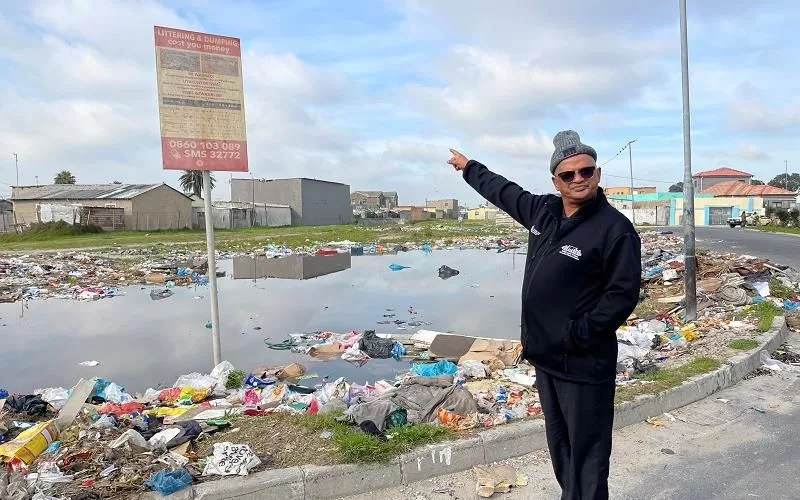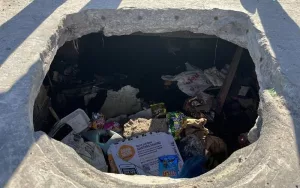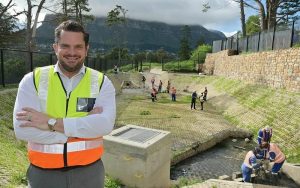Cape Town’s Urban Waste Management Bylaw Enforcement Unit achieved unprecedented productivity in the 2023/24 financial year, issuing over 2,600 fines for illegal dumping and generating over $300,000 in revenue. The unit worked closely with other departments and urged residents to report unauthorized waste disposal, emphasizing the importance of preserving the environment and public health. In response to recent flooding caused by excessive dumping, the city has set up a hotline for reporting illegal dumping and is dedicated to promoting legal and safe methods of waste disposal.
The flooding in Khayelitsha and Cravenby was caused by neglected stormwater infrastructure and illegal dumping, resulting in dangerous living conditions for families. The Roads Infrastructure Management department and the community worked together to resolve the crisis, highlighting the importance of civic responsibility and maintaining urban areas. The impact of illegal dumping was significant, accumulating beneath the surface and posing health and economic risks. This serves as a lesson in the role each individual can play in improving living conditions for all inhabitants.
Cape Town is struggling with illegal dumping, which damages the city’s stormwater infrastructure during heavy rainfall. This careless behavior threatens the city’s structural integrity and requires substantial public funds to repair. Residents can report incidents of illegal dumping, blocked stormwater infrastructure, and potholes through the City of Cape Town app, customer call centre, or official website. It is essential for everyone to understand the severe consequences of reckless waste disposal and take responsibility for safeguarding the surroundings.
In Khayelitsha, a township in Cape Town, South Africa, three children tragically lost their lives after ingesting a poisonous substance. The source of the poison is believed to have come from an illegal dumping site near their home. This heartbreaking event serves as a stark reminder of the dangers posed by illegal dumping and the need for proper waste management in urban areas.
Illegal dumping has been a longstanding issue in Cape Town, costing the city a staggering R300 million annually. However, the Urban Waste Management (UWM) Directorate’s Solid Waste Bylaw Enforcement Unit has taken action to combat this problem and create a cleaner and greener environment for Cape Town’s residents.
Illegal dumping in Cape Town is causing major problems for the city’s annual Winter Preparation Programme. This initiative aims to address flood risk management and ensure that the city is clean and safe during the winter season. However, illegal dumping continues to undermine these efforts, making it difficult for the Road Infrastructure Management (RIM) Department teams to carry out essential cleanup operations in areas such as Newlands, Imizamo Yethu, and Masiphumelele.
Cape Town’s municipal authorities have introduced a groundbreaking pilot project to combat the issue of waste management in community residential units (CRUs). The initiative aims to tackle the problem of overflowing bins and illegal dumping that often plague areas inhabited by backyard tenants. The ultimate goal of the project is to improve community health and cleanliness.








